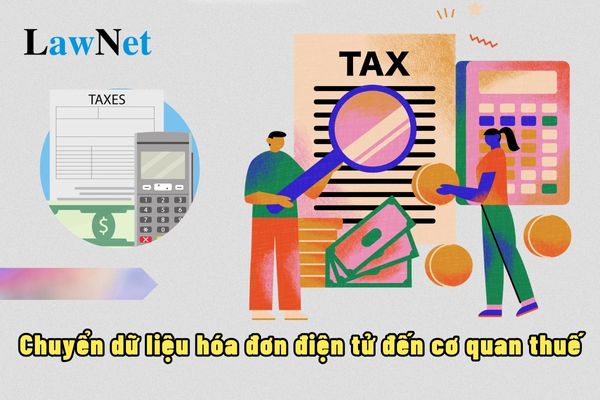What are requirements of service providers meet when transmitting e-invoice data to tax authorities in Vietnam?
What are requirements of service providers when transmitting e-invoice data to tax authorities in Vietnam?
The e-invoice format is stipulated in Article 12 of Decree 123/2020/ND-CP as follows:
E-Invoice Format
1. The e-invoice format is a technical standard that specifies the data type and data length for information fields used in the transmission, storage, and display of e-invoices. This format uses XML language (XML is an abbreviation of "eXtensible Markup Language" created to facilitate the sharing of e-data between information technology systems).
2. The e-invoice format comprises two components: the component containing the business data of the e-invoice and the component containing the digital signature data. For e-invoices with codes from tax authorities, there is an additional component containing data related to the tax authority code.
3. The General Department of Taxation develops and publishes the component containing the business data of e-invoices, the digital signature data component, and provides tools to display the contents of e-invoices as stipulated in this Decree.
4. Organizations and enterprises selling goods and providing services, when transmitting e-invoice data to tax authorities directly, must satisfy the following requirements:
a) Connect with the General Department of Taxation through a dedicated leased line or MPLS VPN Layer 3 channel, consisting of one primary transmission channel and one backup transmission channel. Each channel must have a minimum bandwidth of 5 Mbps.
b) Use encrypted Web Service or Message Queue (MQ) as a method for connection.
c) Use the SOAP protocol for data encapsulation and transmission.
5. e-invoices must be fully and accurately displayed to ensure no misinterpretation occurs, allowing the buyer to read them via e-means.
Thus, in accordance with the aforementioned regulations, service providers when transmitting e-invoice data to tax authorities must meet the following three requirements:
Requirement [1] Connect with the General Department of Taxation through a dedicated leased line or MPLS VPN Layer 3 channel, comprising one primary transmission channel and one backup transmission channel. Each channel must have a minimum bandwidth of 5 Mbps.
Requirement [2] Use encrypted Web Service or Message Queue (MQ) as a method for connection.
Requirement [3] Use the SOAP protocol for data encapsulation and transmission.

What are requirements of service providers meet when transmitting e-invoice data to tax authorities in Vietnam? (Image from the Internet)
Is the illegal use of invoices a prohibited act related to invoices in Vietnam?
According to Article 5 of Decree 123/2020/ND-CP, prohibited acts related to invoices include:
- For tax officials
+ Causing harassment and difficulty for organizations and individuals purchasing invoices and records;
+ Engaging in acts of covering up and collusion with organizations and individuals for the illegal use of invoices and records;
+ Accepting bribes during the inspection and examination of invoices.
- For organizations, individuals selling, providing goods and services, and related organizations and individuals
+ Committing fraud such as using unlawful invoices, unlawfully using invoices;
+ Obstructing tax officials in their official duties, specifically actions that cause harm to the health and dignity of tax officials during the inspection and examination of invoices and records;
+ Unauthorized access to, altering, or destroying information systems related to invoices and records;
+ Offering bribes or committing other acts related to invoices and records for illicit gains.
Thus, it can be seen from the above provisions that the illegal use of invoices is one of the prohibited acts related to invoices.
What acts are considered illegal use of invoices and records in Vietnam?
Based on Clause 2, Article 4 of Decree 125/2020/ND-CP the acts of illegal use of invoices and records include:
- Fake invoices and records;
- Invoices and records not yet valid or expired;
- Invoices suspended from use during enforced cessation, except where use is allowed as per the tax authority's notification;
- e-invoices not registered for use with the tax authority;
- e-invoices without the tax authority's code for invoices required to have such a code;
- Goods purchase invoices with issuance dates after the tax authority determines the seller is inactive at the registered business address;
- Goods and services purchase invoices and records with issuance dates prior to the time it is determined that the issuer is inactive at a registered business address or before the tax authority's notification of such inactivity, where tax or police authorities or other competent bodies have concluded these are unlawful invoices and records.
Additionally, the use of invoices and records in the following cases is considered unlawful:
- Invoices and records not containing all mandatory content as per regulations; invoices altered or corrected against regulations;
- Sham invoices and records (invoices or records that have recorded economic criteria or content but the acquisition of goods and services is partly or wholly fictitious); invoices that do not accurately reflect actual incurred value or false or fake invoices;
- Invoices with discrepancies in goods or service value or required criteria between invoice copies;
- Invoices reused for goods transportation or those used to cover for other goods or services;
- Invoices and records of other organizations or individuals (except for tax authority invoices and where invoicing is authorized) to legitimize inwards or outward goods and services;
- Invoices and records determined by tax or police authorities or other competent bodies to be unlawfully used.

